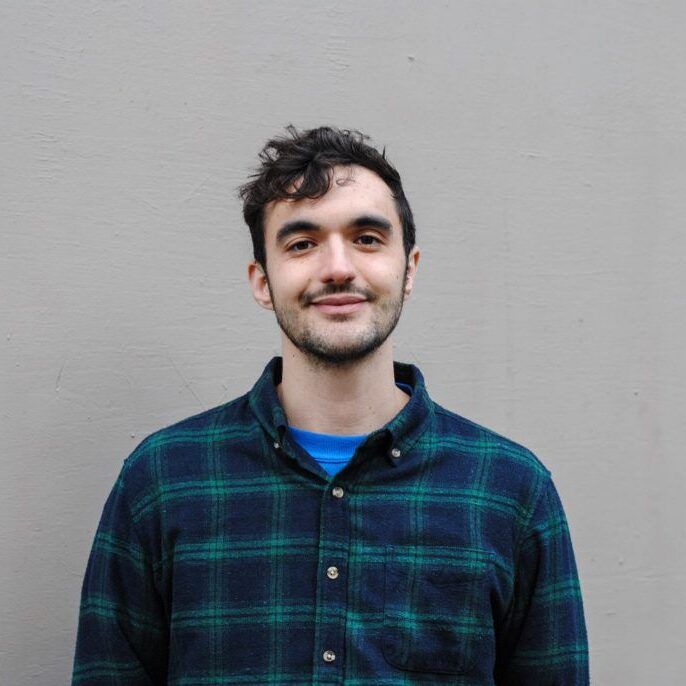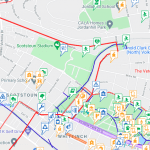This blog is edited from a talk Kat Jones, SCCS COP26 Project Manager, gave at an event organised by Inclusion Scotland on Disability, Climate Justice and Eco-Ableism. You can watch the full event at the link below.
Taking part in this Inclusion Scotland event was a really eye-opening experience for me as a long-time environmentalist who has been largely unaware of the deep inequalities and discriminations felt by disabled people in my area of work. In this blog below I hope I can get people thinking about how we can start to address past and current injustices and also to join up with the effective and powerful disabled activists to work together to solve the climate crisis.
I encourage readers to watch the full event if you can, I have recorded timestamps for the various sections to help.
This issue of eco-ablism, where discrimination against those with disabilities by environmentalists – either though policies that work to the detriment of disabled people, or by being made to feel that they aren’t ‘green’ enough has to be dealt with urgently. This is not something that we can tolerate in a just society.
From my understanding- some of the eco-ablism comes from a worldview that being environmentally friendly, or ‘saving the planet’ is down to individual action and behaviour change. The messages we have been getting over the past decade are all about this: ‘Recycle more’, ‘Drive less’, ‘Don’t take a straw’, ‘Take public transport’ and then we will sort out climate change.
But we won’t sort out climate change by making small changes like this.
Putting the burden for the climate crisis on individuals takes away the onus on the big baddies in the room – the big polluters, those that finance the way things work, the vested interests, governments.
We’ve been talking about behaviour change and consumer choice for so long now it’s hard for us to see what the impacts of this way of thinking actually are. These can be counterproductive to making the real change we need to make and some of the impacts are these:
- Guilt – people feel guilt if they can’t do things and then feel powerless to act
- Tokenism – ‘I’ve not taken a straw – that’s great, I’m a green superstar. Now let’s get on easyjet and book that weekend to Prague’
- Injustice – the burdens are being placed on individuals who are often least able to deliver that change
- Deflection from the real issues – people are made to feel like they cannot have an opinion or speak out on climate unless they personally have a miniscule carbon footprint – so it discredits people’s voices and real experiences
And this approach of individual responsibility, although well meant by some, has been exploited by those with vested interests to avoid changing the things that would really and truly make a difference.
Plastic straws is the ultimate example of this. Having caused so much pain and exclusion to disabled people, the ambition of removing straws from everyday life is just so obviously tokenistic, when you compare it with the monumental climate and nature emergency we are trying to solve.
It is changing the system that we really need. The influential IPCC 1.5 degree report of 2018 stated that ‘‘limiting global warming to 1.5 degrees would require rapid, far-reaching, and unprecedented changes in all aspects of society”.
This doesn’t mean making changes in individual choices it means wholesale change. In the whole of society.
We need to move from this behaviour-change / individual-change model, to a climate justice centred approach where we look at the issue of climate crisis as one of many symptoms of an unjust system which is designed to enrich a small proportion of people at the expense of other people, and the planet. Ableism, racial injustice, social injustice, and the climate and nature and covid crises have a common thread – we need to join the dots to work on creating solutions that tackle the root cause of the many injustices we see in the world. We can’t tackle the climate crisis without tackling exclusion of disabled people
So Where to Start?
We need to Join The movements: I’ve seen how effective, determined and passionate disability activists are over the past few months. We need to bring together the work that we are all doing – and bring in other movements too so that we can start to talk about linking things up with this Justice-centred approach.
We need disabled people in the decision-making space for the environment and climate. Firstly and simply we’d love groups to join Stop Climate Chaos Scotland – we have NGOs as members but also community groups so Disabled People’s Organisations (DPOs) would be welcome to join and any other groups. We need to have disabled activists round the table when we are devising policy proposals and campaigns.
It’s no good having someone as effective as Susie, at Inclusion Scotland, having to spend her time undoing poor policy once it gets to the stage of a government consultation. We need her in the room as we design our campaigns and policy proposals.
Also, and this goes without saying – there should be people with lived experience of disability in senior decision making positions throughout society.
And change is in the air.
Disabled activists have been working to be recognised as a formal constituency of COP for a number of years and this may be the year that it happens. This would recognise the particular vulnerability of people with disabilities to climate and also the crucial importance of hearing their voice within the formal UNFCCC processes. There is much that the Scottish disability movement can contribute to this and I really hope to see that we at SCCS can link closer with disability groups to join up our movements, and also to make better policy proposals to make those rapid, far-reaching, and unprecedented changes that we need to stay below 1.5 degrees in a just way.
Below is the video of the event organised by Inclusion Scotland.
Video timestamps for each presentation are by the name.
(00:00) Susie Fitton (Chair’s intro )Susie is a Policy Officer for Inclusion Scotland where she leads on their policy work on climate change. This work is focussed on involvement, accessibility, inclusion and tackling inequality so that our responses to a changing climate are socially just.
(10:11) Elizabeth Wright, is an editor, consultant, speaker, and disability activist. She brings forth all of her life experience as a disabled woman to challenge people around disability, representation, and inclusion. Elizabeth has written insightfully about Eco-Ableism – here
(15:37) Alice Gardner, artist and disability activist who is joining us from Washington DC. Alice writes, researches and campaigns about Eco-Abelism and Eco-facism. A blog she wrote is here
(21:00) Catrina Randall coordinates Young Friends of the Earth Scotland (YFoES), a network of climate and social justice activists aged 16-30. YFoES is tackling issues of ableism and more within the climate movement through their Access and Inclusion Working Group, where disabled, chronically ill and neurodivergent young people and allies are working to improve YFoES and create change in the wider movement.
(27:40) Kat Jones is the COP26 Project Manager at Stop Climate Chaos Scotland, her role is to organise and coordinate civil society efforts ahead of COP26.
(50:55) discussion on ‘Spaces for People; and Eco-Ableism

Nick Cullen
Nick is a past coordinator for the Climate Fringe platform and Climate Fringe Festival, working on strategy, website development and communications. He spent two years at SCCS in the lead up to COP26 and led on developing the Homestay Network, volunteering programme, COVID-19 safety, and many other aspects of logistics and operations in collaboration with the COP26 Coalition.




